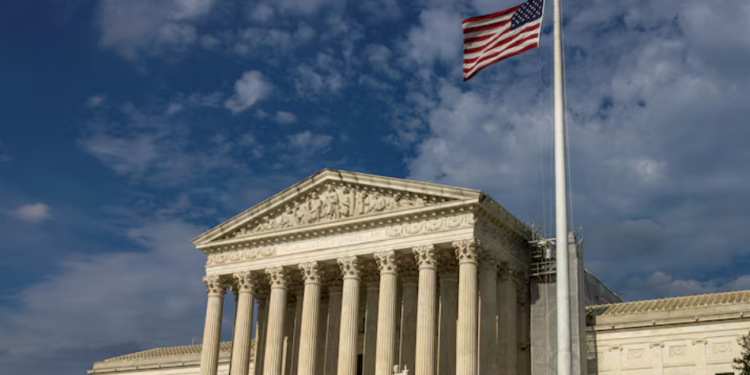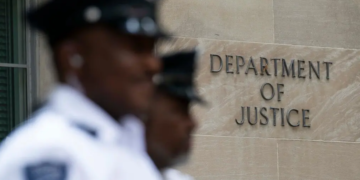Nov 14, 2024 Story by: Editor
The U.S. Supreme Court announced it will hear a challenge involving Louisiana officials and civil rights groups who are seeking to preserve a new electoral map. This map, which increases the number of Black-majority congressional districts in the state, is contested by a group of voters who describe themselves as “non-African American.”
The justices agreed to review appeals from a decision made by a panel of three federal judges. The panel had determined that the map, which redraws Louisiana’s six U.S. House districts to include two Black-majority districts (up from one), likely violates the U.S. Constitution’s equal protection clause.
In May, the Supreme Court allowed the map to be used in the election on Tuesday, which will decide control of the House. The court’s decision to hear the appeal will not affect the use of the map for this election. A final decision in the case is expected by the end of June.
Stuart Naifeh, a lawyer with the NAACP Legal Defense Fund, which is involved in the case, said, “We look forward to continuing to defend the rights of Black voters to elect their candidates of choice in the Supreme Court.”
Each decade, legislative districts across the country are redrawn to reflect population changes. The Louisiana case is the latest in a series of legal disputes over racial issues that have arisen during the redistricting process.
The Republican-controlled Louisiana legislature approved the current map in January after U.S. District Judge Shelly Dick ruled in 2022 that the previous map, which only included one Black-majority district, unlawfully harmed Black voters. Judge Dick concluded that the old map likely violated the Voting Rights Act of 1965, a landmark law designed to prevent racial discrimination in voting. Black people make up nearly a third of Louisiana’s population. The Supreme Court upheld Judge Dick’s ruling in 2023.
In January, 12 voters in Louisiana, identifying as “non-African American,” filed a lawsuit to block the newly drawn map. A lawyer for the plaintiffs did not respond to a request for details on the racial makeup of the plaintiffs.
A three-judge panel ruled 2-1 on April 30 to temporarily block the map, labeling it an unlawful “racial gerrymander.” The panel argued that the way the districts were drawn likely violated the 14th Amendment’s equal protection clause, as race appeared to be the predominant factor in the map’s creation. The 14th Amendment, ratified in 1868, addressed issues concerning the rights of formerly enslaved Black people.
Gerrymandering refers to the manipulation of electoral district boundaries to disadvantage a particular group of voters and enhance the political power of others. In this case, the judicial panel sided with plaintiffs who argued that the map unlawfully diminished the influence of non-Black voters.
Two judges appointed by Republican President Donald Trump formed the majority in the ruling, while a judge appointed by Democratic President Bill Clinton dissented. Black voters generally support Democratic candidates. The panel had instructed Louisiana’s legislature to create a new map by June 3, but the Supreme Court intervened, allowing the disputed map to be used in the 2024 elections.
In their appeal to the Supreme Court, Louisiana officials urged the justices to approve the map and resolve the ongoing legal battle. Louisiana Attorney General Liz Murrill, a Republican, praised the court’s decision to take up the case, stating, “State legislatures have the responsibility under the federal Constitution to draw these maps. Based upon the Supreme Court’s most recent pronouncements, we believe the map is constitutional.”
Earlier this year, the Supreme Court made it more difficult to prove racial discrimination in electoral maps in a key ruling supporting South Carolina Republicans, who redrew a U.S. House district by moving out 30,000 Black residents. Source: Reuters

















